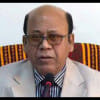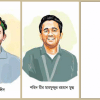Jail, fine for pvt tuition
Anyone giving private tuition or coaching will have to face punishment, as the draft of a new law stipulates that the government can take necessary measures to stop private tuition and coaching.
The charge of violating the law carries jail term of up to six months and a fine of up to Tk 2 lakh, according to the draft Education Act, 2016.
The education ministry formulated the draft in line with the recommendations of the National Education Policy-2010. The ministry has put the draft on its website (www.moedu.gov.bd) to elicit public opinions. People can give their opinion in a prescribed form and send those to the emails of the ministry before April 10. This is the third time the ministry seeks opinion on it.
The move to prepare the draft law began in 2012 and a draft was prepared the next year. The ministry in August 2013 put it on its website to seek opinions from educationists, civil society members and other professionals. Bringing some changes in it, the ministry again put it on the website in October last year.
The draft act slaps a ban on publishing guidebooks for primary or secondary levels. Publishing notes and guidebooks will be regarded as a punishable offence and the violators will face similar punishment like the ones giving private tuitions.
It says students will not be subjected to any form of corporal punishment at the educational institutions. People breaching this provision will be fined Tk 10,000 or awarded three months' imprisonment or both.
However, the penalty for indulging in corporal punishment at primary level will be a fine of Tk 50,000 or three months' jail or both.
According to the draft, there will be four levels of education in the country -- pre-primary, primary, secondary and higher education.
The pre-primary and primary education will be free and compulsory. “These levels will be regarded as children's right,” says the act.
The duration of pre-primary will be two years while primary education will be up to class VIII from class I, it adds.
The subjects that students at primary level will study include Bangla, English, mathematics, religious and moral education, Bangladesh studies, Introduction to world, information technology and science and paribesh parichiti by the National Curriculum and Textbook Board (NCTB).
Except the textbooks fixed by the NCTB, the schools will not include any other book in the syllabus. For violating this provision, the head of the schools or the publisher of the book will face six months in jail or Tk 2 lakh in fine or both, says the draft act.
Students from class-III to class-VIII will have to sit for a half-yearly and a terminal exam. The government through its executive order or rules will decide the number and methods of public exams at primary level. However, there will be a public exam at the end of class-VIII, according to the act.
The secondary level will be from class IX to XII and Bangla, English, Bangladesh studies, mathematics, and ICT will be compulsory in general, madrasa and vocational streams of this level.
However, at O- and A-levels, two subjects -- Bangla and Bangladesh Studies -- will be compulsorily and that the teaching activities at O- and A-levels will have to be conducted with the government's approval, the draft mentions.
Violating this rule will be regarded as a punishable offence and the violators will be fined highest Tk 3 lakh or jailed for six months or both, it adds.
To establish and operate English medium schools, registration from the education board is a must. The managing committees will fix students' tuition fees in consultation with the board and considering the schools' standard of education and infrastructural facilities.
The governing bodies of the schools having English version will fix the students' monthly tuition and other fees considering their expenses and get it approved by the education board. Anyone defying this provision will be fined highest Tk five lakh or jailed for one year jail or both.
About higher education, the draft act said no foreign university will open branches or operate study centres in Bangladesh without the approval of the authorities concerned.
Violation of this provision will mean jail term for five years or a fine of Tk 10 lakh or both, it said.
The act said the government will form a “regulatory commission” to “logically” fix the tuition and other fees of the students of higher educational institutes.
The government in June 2012 formulated a policy for teachers to curb unauthorised coaching practice at their educational institutions.
But defying the rule, this practice is still going on unabated in metropolitan cities. A number of parents in Dhaka alleged that some teachers force the students to either take tuitions from them or attend pre and afterschool coaching classes; otherwise they will not evaluate them properly.
The policy, however, said teachers can provide tuition at their houses to a maximum of 10 students of other institutions per day upon receiving prior permission from their respective heads of the institutions.

 For all latest news, follow The Daily Star's Google News channel.
For all latest news, follow The Daily Star's Google News channel. 








Comments